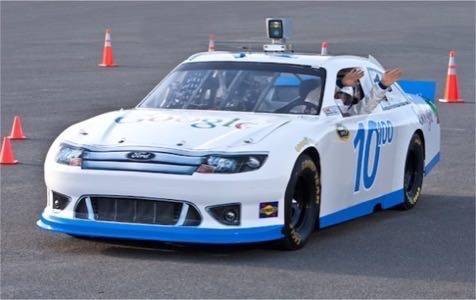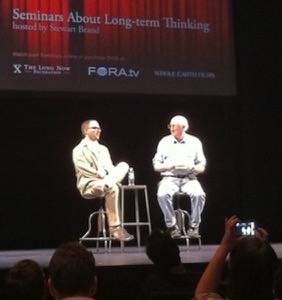
It won’t be long before not only our phones but also our TVs, cars, refrigerators, pacemakers, and most other essential equipment are just networked computers in different shapes. When that happens, using those devices responsibly becomes more complicated than just turning on an iPad and letting Apple handle the rest. We need a new regime of consumer protection around general-purpose computing.
Cory Doctorow explained from the stage at the Novellus Theater in San Francisco Tuesday night that people need greater safeguards of their rights over computers than currently exist. We’re getting along okay while our computers are just gizmos for typing on. But would you get in a self-driving car without reading the EULA carefully?

The terms of service and end-user license agreements we sign today are hopelessly broken. We’re never going to read all that crap, and the companies that create them know it. In fact, businesses make it as easy as legally possible for you to just click “I Agree” and get on with your day without reading a word of legalese.
It’s one thing to use Google Play without paying attention to the license you’ve agreed to. It’s another, to repeat one of Doctorow’s examples, to have a next-generation cochlear implant that you can’t upgrade to better, third-party firmware because you incidentally made a legally binding agreement not to when you bought it. Now you’re doomed to worse hearing just because the device maker insisted on controlling the user experience.
“We need design norms with fail-safes in them,” Doctorow said. The notion that users must be properly informed of their rights and responsibilities must be baked into the very idea of computing.
No doubt, cars that let a computer do the driving will be an improvement. (“Human beings have no business driving cars,” Doctorow joked, since we clearly lack the skills to do so safely.) But we need better information than a comically long license agreement before we entrust life and limb to the software that will guide us down the highway.
Doctorow admitted that he doesn’t yet know how to solve the problem, and he didn’t exactly propose government regulation as the solution. But today, it’s hard to imagine a better way to implement this than federal law regulating the agreements between users and their computers. The AppRights.us initiative spearheaded by Congressman Hank Johnson (D-Ga.) is currently focused on figuring out mobile privacy, but Congress needs to start thinking about general-purpose computing at once.
If we don’t set ground rules today, while computers are relatively simple, we’ll surely lose control when they get complicated.
Lead image via Official Google Blog

















